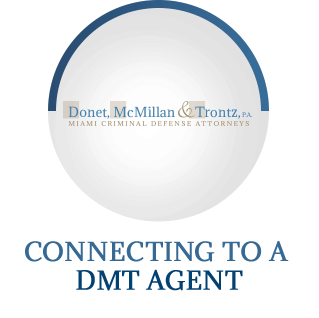Caribbean drug trafficking routes back in play
March 20, 2012
Efforts to curtail drug trafficking in Central American may inadvertentlyre-open former drug routes throughout the Caribbean. If the Caribbeanbecomes utilized for its drug routes as it has in the past, Miami mayonce again become the hub for drug importation into the United States.As the federal government's "war on drugs" concentratesin shutting down drug routes in the Central American corridors, PuertoRico and other Caribbean islands could become main routes in the drugtrafficking business.
Miami criminal lawyers have always seen a steady stream of cases since the 1980's, however,federal authorities expect an increase in the number of cases as old traffickingroutes are re-opened.
Congress, as well as, the United Nation's Narcotics Control Board isconcerned that the increased pressure on Central American drug routeswill cause the less protected Caribbean to once again become the primarytrade route for illegal narcotics such as cocaine and heroin. Drug relatedviolence in Puerto Rico has already begun to sky-rocket with the number of
murder cases rising to 1,136 last year. It is believed that 70% of those murder casesare drug related. Puerto Rico has enlisted the National Guard to quellthe violence. New equipment and security measures are being implementedin San Juan that will allow for the inspection of all of the cargo passingthrough the port. Concern is mounting that the re-routing of drugs willcause Miami to re-live the 1980's where the "Cocaine Cowboysbecame infamous. The 1980's were a time a violence and chaos as cocainetrafficking was taken to new highs. During these times, Miami and SouthFlorida was considered to be the most dangerous locales in the United States.
Many fear that an increase in the flow of drugs through the Caribbean willdirectly impact Miami. Over the past couple of years, the Florida legislaturehas contemplated reducing the Draconian minimum mandatory penalties inan effort to reduce the costs of housing prisoners receiving double digitprison sentences for
drug trafficking. The rationale of doing away with the minimum mandatory sentences wasbased on prison overcrowding, budget cuts and the burden being put onthe taxpayers responsible for paying the high cost of housing inmatesfor extended periods of time. While the costs incurred by housing inmatesfor extended periods of time are a concern, the possibility of increaseddrug trafficking and violent crimes in Miami and South Florida make ithighly unlikely that the legislature will repeal the long prison sentencesthat can be handed down for those arrested and convicted of drug trafficking.
As a result if the large scale drug importation business that riddled SouthFlorida, the legislature passed
sentencing laws that would take those convicted of drug trafficking off the streets formany years. For example, anyone convicted of cocaine trafficking in excessof 400 grams faces a 15 year minimum mandatory sentence. Heroin traffickingin excess of 28 grams carries a 25 year minimum mandatory sentence. Thefederal sentencing guidelines are every bit as oppressive when dealingwith federal drug trafficking cases. Another negative impact caused byan increase in drug trafficking cases could be reflected in more stringentpolicies being put in place when dealing with bonds, both in state andfederal court. Bond reductions may be less prevalent and prosecutors maylook at Nebbia satisfaction requirements with a more discerning eye. Alldefendants charged with drug trafficking must prove to the prosecutingauthority where the proceeds used to post bail originated, for both thecollateral and the premium. With the downturn in the housing market, itis increasingly difficult to prove to the prosecution that houses havethe required collateral to satisfy the bond requirements. If the futureis as some predict, the criminal court system in South Florida could onceagain be indirectly overwhelmed by drug cartels.
Cocaine Cowboys, Not Again?, Miami Herald.com, March 19, 2012.

















